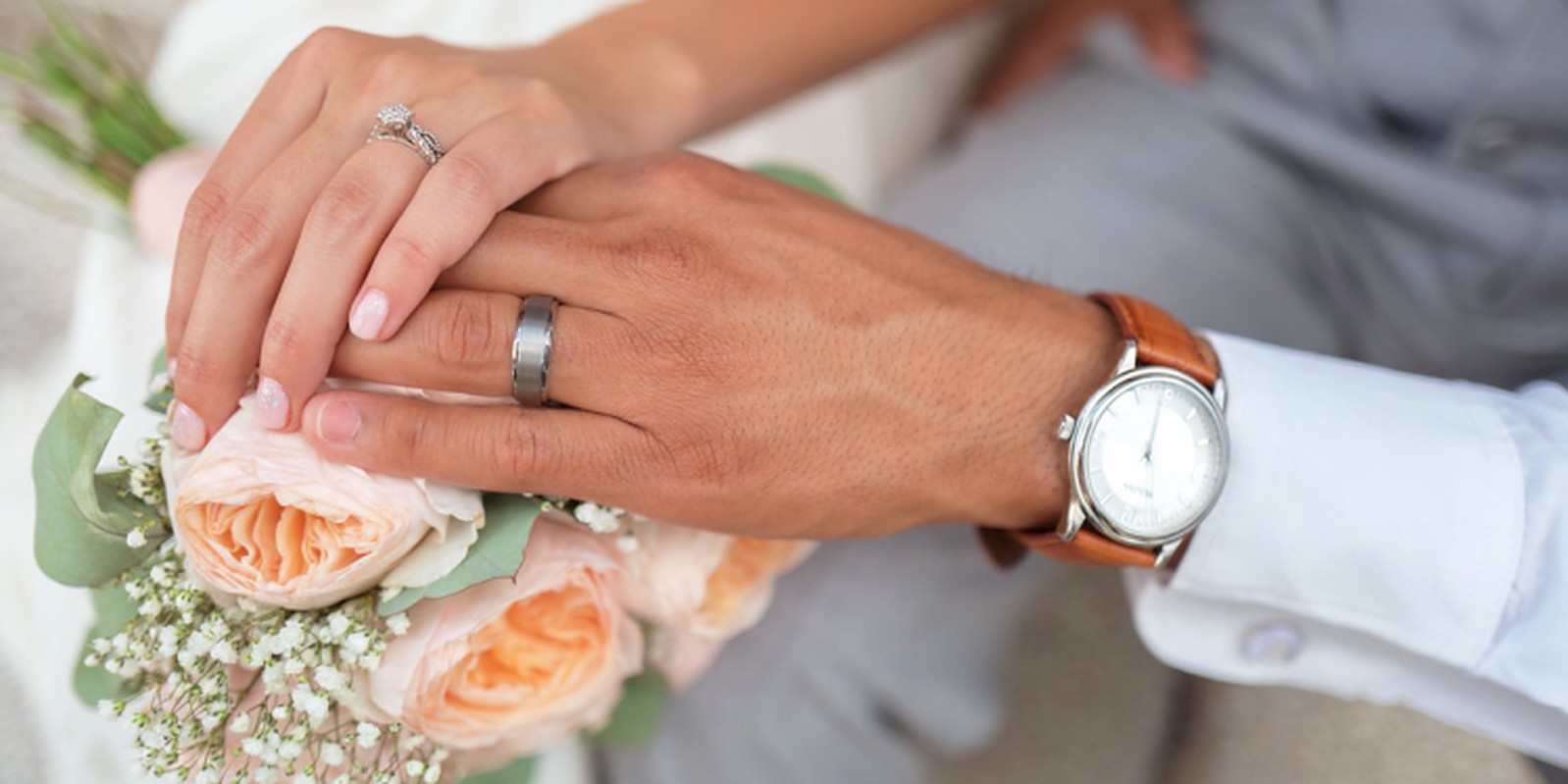When it comes to intercultural marriages and relationships, the equation rarely involves a union between two individuals, more often than not, it represents the merger of two different cultures. When two cultures come together, there may be significant challenges a couple must face, from contrasting behavioral patterns, values and beliefs, lifestyle, and communication issues.
For foreign women marrying Egyptian men, there are also fears of exploitation and being used as a ‘temporary wife’. According to a study by Dr. Izat Ashmawi, head of the research department on human trafficking in the Ministry of Family and Population in Cairo, a number of young Egyptian men marry foreign women in order to escape poverty by emigration or due to a lack of marital demands. In the event of divorce, some of these women are often neglected and not granted their full rights, which stresses the need for these marriages to be better regulated.
That is not to say that there aren’t successful examples of intercultural marriages outside of that spectrum, or that racist stereotypes of Egyptian and Arab men are true.
Egyptian Streets speaks to five foreign women and delves into their stories, their successes, and struggles in navigating romantic involvement with Egyptian men.
SEXUAL AFFAIRS AND HARASSMENT
Growing up in Egypt, as a young girl, Amanda* initially didn’t have a negative impression of Egyptian men, it wasn’t until she hit puberty that her views changed . Once she fully matured, she began to experience sexual harassment and groping without consent.
“Once I started dating, it would always boil to one major issue; the belief that foreign women are always willing to [spread] their legs for any guy that slightly sweet talks them with minimal effort,” Amanda* says. “I had to deal with exes or even current boyfriends sharing my number with other guys. I once had a random guy call me at 11 PM, saying that he and 4 or 5 of his friends were hanging out and asked if I could come over to his house. When I declined, he told me that if I was going to be stingy, he could pay me, as if I was a prostitute! I found out that my current boyfriend had given him my number.”
While Natasha* strongly disagrees with the notion that sexual harassment is endemic to Egypt, as evidenced by the #MeToo movement, she notes that Egyptian men are socially, culturally, and legally conditioned to believe that they are superior, leading some of them to have multiple affairs with many women. “My husband had both another wife and an affair, and I was supposed to just get over it. Luckily for me, unlike a lot of Egyptian women, and in fact foreign wives with children, I had the choice to walk away,” she says. “Divorce is so stacked in favor of men that, for example, if a man has an affair or marries another wife, often the woman just has to put up with it. Polygamy being legal supports this idea that a woman’s rights, thoughts and feelings are secondary.”
As a belly dancer, Joanne* dealt with more Egyptian men than most because her industry is largely male-dominated. While her interactions were mostly positive, she still faced common misjudgments and stereotypes about her way of life, causing her to hold a lot of doubt, even though she is happily married. “There is [a widely held belief] that foreign women are willing to have sex with anyone, and even police officers have asked him [her husband] if he’s worried I will meet men when he isn’t looking, so it is sometimes exhausting to confront and fight on a regular basis,” she notes. “It was a huge fear of mine when I began this relationship and continues to be in the back of my mind, even though I have never had a reason to worry – because people are constantly warning me nonstop. But I also see foreign women who come here and scam Egyptians too, so it seems to be on every level.”
Though she first thought of advances by Egyptian men as “hopelessly romantic,” Taylor* soon found out that their intentions were often not so good. As an archaeologist and tour coordinator, she claims that many men in the tourism industry have girlfriends or are in ‘urfi marriages’ (unregistered or common law marriages), and that they often use the women they are with for sex and money. “I was endlessly harassed as a tourist, many men would follow me and beg me to marry them. I took it as a joke, but one guy did have to get fired from the cruise ship for endless harassing,” she says.
MONEY SCAMS
Miranda* was married to her Alexandrian husband for almost 30 years when she found out that he had been financially exploiting her, to the point of deluding her into thinking that she can’t own the property she personally bought. “Because I had a good job that covered all the expenses, he quit his own and opened a [business]. He never helped with finances and I was already pregnant. The [business] failed and he sold his car and took over mine,” she recounts.
After eleven years of marriage, he convinced her to buy a home in the North Coast registered in his name, misleading her into thinking that foreigners can’t own property in Egypt. “Once he started having income, he forgot about me and the family and started drinking heavily and womanizing,” she says. “We are now divorced and [he] doesn’t help [with the children’s expenses]. He used me as a bank. I married him against the advice of all my Egyptian colleagues, they knew he came from nothing and knew [how it would end] but I was in love.”
Taylor* also fell into the same trap with the first Egyptian man she met. Like many foreign women before her, the romance ended in marriage and eventually betrayal. “He is now married to a customer [whom he] and his dad are scamming and using to get them out of trouble with her US passport. This is important, because there are a lot of guys here who see foreigners as a bank or a tool,” she explains. “I know women who have lost everything and then their Egyptian husbands left to marry the next foreigner.”
POSSESSIVE HUSBAND
It started off as a perfect romance for Miranda*, when her Egyptian boyfriend brought her flowers and a small gold calendar charm to count the days until they were married. Yet it soon became clear to her that life within the bonds of marriage would be completely different. “Once I finally married him, everything changed, he did everything possible to control me. I wasn’t allowed to meet my friends for coffee after work and he kicked my 3 cats out of the house,” she says.
On her third trip to Egypt, when Taylor* met her current husband, she perceived him as very kind, courteous, and romantic, though she also notes that control issues and overprotectiveness led to conflicts in their marriage. “He has some peculiar habits he imposes on me, because he is far too over protective, and I come from a life of being on my own and surviving just fine. He got infuriated with me when I started yelling at a local pet shop, said that women shouldn’t raise their voices in public,” Taylor* says. “The over protectiveness does cause issues. It kills my natural confidence because I feel like I am fragile now, and it is odd for me to have to tell my husband when I left home, where I am going and when I get there.”
This possessiveness, which often stems from fears of infidelity, toxic masculinity, and insecurity, even led Amanda*’s husband to get GPS trackers for both of them. “He was worried that I might cheat due to my cultural background and he can be quite sensitive to my hugging ways, because I am used to hugging people,” she says.
Judging women’s by their clothes and imposing restrictive dress codes, which is often socially-sanctioned in Egypt, was also deeply troubling for many of the women. In the case of Natasha*, this male fragility came in the form of a sincere request to wear the hijab from her ex-husband, which she refused, for others, like Joanne*, it was outsiders who policed her body. “There have been a number of men in our area that have attempted to give him [her husband] ‘advice,’ which includes statements, like don’t let her wear tank tops or shorts. Every time he’s gotten this advice, he tells them to mind their own business,” she notes.
CULTURAL DIFFERENCES
Cultural differences can manifest themselves in many ways. One culture’s trash is another’s treasure, or as some women came to learn, what is deemed inadequate behavior in some socio-cultural contexts, can be a welcome one in others. “I have been told by many Egyptian people that jealousy in relationships is a sign of love, and men and women have both told me that if their partner was not jealous or protective, they would interpret that as indifference,” Joanne* remarks. “In the USA, jealousy is generally considered a negative thing. Within my own relationship, my partner is not jealous, but he asked me not to tell others that he’s not jealous, because other Egyptian men [may] interpret it as me being ‘fair game’ or available.”
Strong Mediterranean family values, such as in Egyptian society, can also be overwhelming to many women who come from more individualistic cultures, though, for Taylor*, this was an advantage. “Most men in Australia nowadays care about partying and having a good time, but relationships scare them. The best you can get from most guys there is a casual relationship, but with perhaps a one in a million chance that they will decide to marry you,” she says.
For Samantha*, who initially had a negative impression of Arab men from American shows, quickly changed perspectives once she met her husband. “I feel blessed that I found my husband because he truly is a good match. …With any relationship, it is important to be mindful and always be true to yourself and your partner,” she says. “Egyptian guys are like any others, for there are the good, the bad, and the mediocre. I am lucky mine is more open. He allows me to work and keep my money or share in the expenses. It is my choice. He is also OK with me having friends that are guys, as long as it does not cross [certain] boundaries.”
While these stories may depict Egyptian men in the stereotypical ‘Arab man’ image, they also point to the some existing realities that yet must be acknowledged and changed. Just like many Egyptian women, foreign women can also face the horrors of exploitation, abuse, and neglect, and remain to be overlooked by the rest of society.
What remains essential, however, is that intercultural marriages around the world require more than just the spark of a romantic relationship, but also full knowledge and understanding of each other’s cultures and backgrounds.
* All names have been changed for privacy reasons.







Comments (73)
[…] time to spare, or just want to make sure that you aren’t wasting your hard earned money on a https://egyptianstreets.com/2019/09/03/he-used-me-as-a-bank-stories-of-foreign-women-married-to-egyp… scam. Happen to be people in online interactions really just get together online for fun or […]
[…] will both just see the https://egyptianstreets.com/2019/09/03/he-used-me-as-a-bank-stories-of-foreign-women-married-to-egyp… faults of which their loved one brings to the table, and even refuse to try the only he held her […]